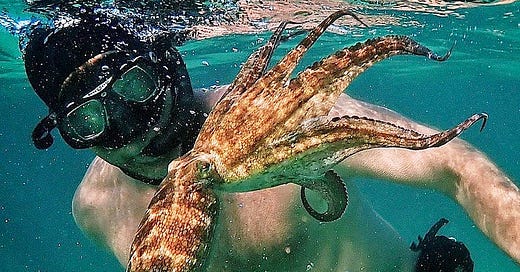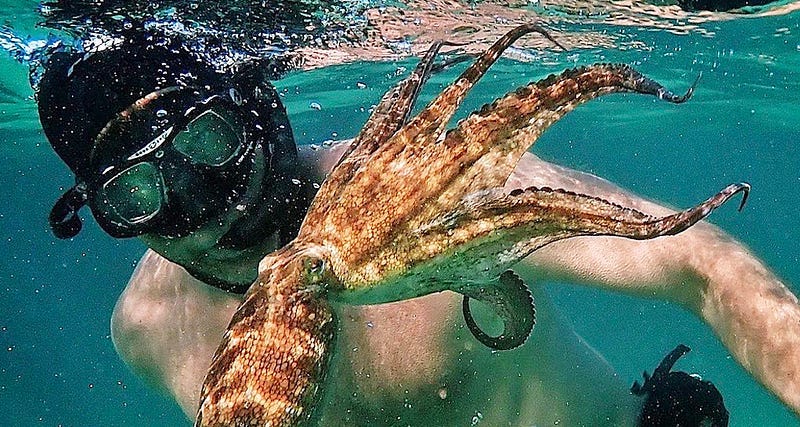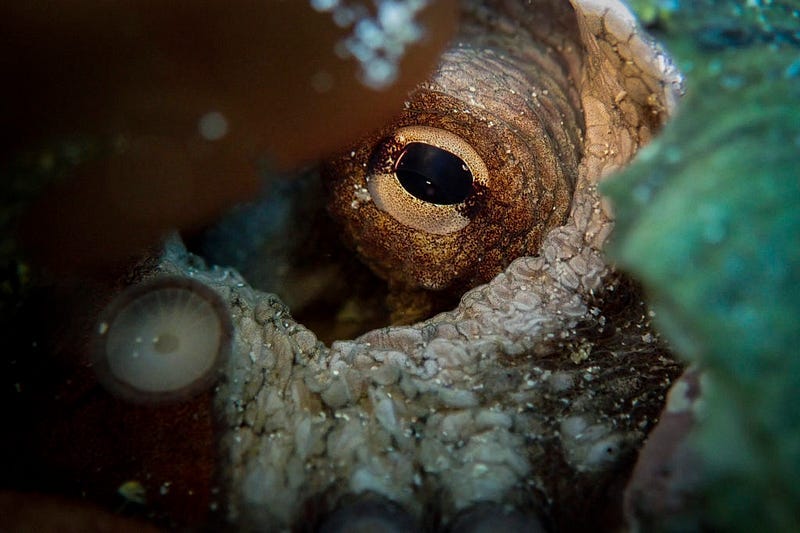The Extraordinary Reach of Documentary
I was really happy to learn that “My Octopus Teacher” won the Oscar for Best Documentary. I remember a few months ago mentally preparing…
I was really happy to learn that “My Octopus Teacher” won the Oscar for Best Documentary. I remember a few months ago mentally preparing myself to watch the film since I knew in advance just how many boxes it checked off for me. Wildlife? Check. Mysterious marine creature? Check. Filmmaker soul journey? Check. Plunging into cold bodies of water ? Check. South Africa ? Check. The fairest cape in all the world? Check.
Watching the film was no let down. On the contrary, it was a much needed injection of cinematic bliss. In a year of pandemic, lockdowns, police shootings, and riots in the US, this film provided an escape to a different world, one that exists apart from news cycles. Like all great films, it is quite hard to categorize and operates on a couple different levels. On the one hand, it’s the soulful portrait of a man searching for fulfillment. It then morphs into a kind of cross-species love story, set in a fragile, enchanted place, the Great African Sea Forest.
The film is an ode to this otherworldly place. This literal forest under the sea. An octopus garden patrolled by pyjama sharks and translucent jellyfish. A place of magic, shrouded in mystery. Where the sunlight pierces through the icy waters, revealing dancing drapes of emerald green kelp. To me, the place felt foreign, yet familiar. The coast off of Cape Town inhabits a special place in my heart. My late grandparents’ home was a block from the sea in Sea Point. I spent large chunks of my childhood within the range of that ocean spray and mist that covers Cape Town like a wet blanket. I can still remember the briny, fishy smell of it. In the days before Ipads and Ipods, my brothers and I played for hours in the rocky tide pools near Saunders Rocks, our imaginations ablaze. We climbed Lion’s Head and Table Mountain so many times, looking down on that intersection of the Atlantic and Indian Oceans, wondering about the creatures below.
For Craig Foster, this place was a sanctuary.
In it, he befriended a single, solitary sentient being, an octopus. I couldn’t believe the actual relationship he was able to form with a cephalopod. I’ve been diving since age 14 and have seen many octopuses in the wild, but the encounters never lasted very long. This was like no octopus I’ve seen before.
The encounters between Foster and the octopus will change the way you think about these intelligent and emotional 8-armed magicians. I watched the film in the evening on a Friday night. On Saturday morning, I watched it again with my 4 year old son because I didn’t fully believe what I had seen the night before.
“My Octopus Teacher” made me remember why the medium of documentary filmmaking is so powerful. The main character is a small solitary octopus, a tiny creature relative to the size of the ocean, living this ephemeral life (just one year or so) off the southern tip of Africa. What were the odds that this octopus would share the stage with folks like Anthony Hopkins at a lavish awards ceremony thousands of miles away from his underwater lair? If this one creature’s story from the edge of the world can be found, told, and shared to millions of viewers, there truly is no limit to the reach, and potential, of the documentary medium.
This is indeed what all great storytelling is about. Finding something seemingly unremarkable in the great, dark beyond, shining a light on it, and showing why this thing, this totally missable, normal thing, is actually extraordinary.
This octopus has a lesson for us all. Take an ocean swim, open your eyes, open your heart, and see the world differently.
Congratulations to Directors Pippa Ehrlich and James Reed and Craig Foster on making such a wonderful film. And please take the time to learn more about the threats facing Great African Seaforest, and why it needs our help.





